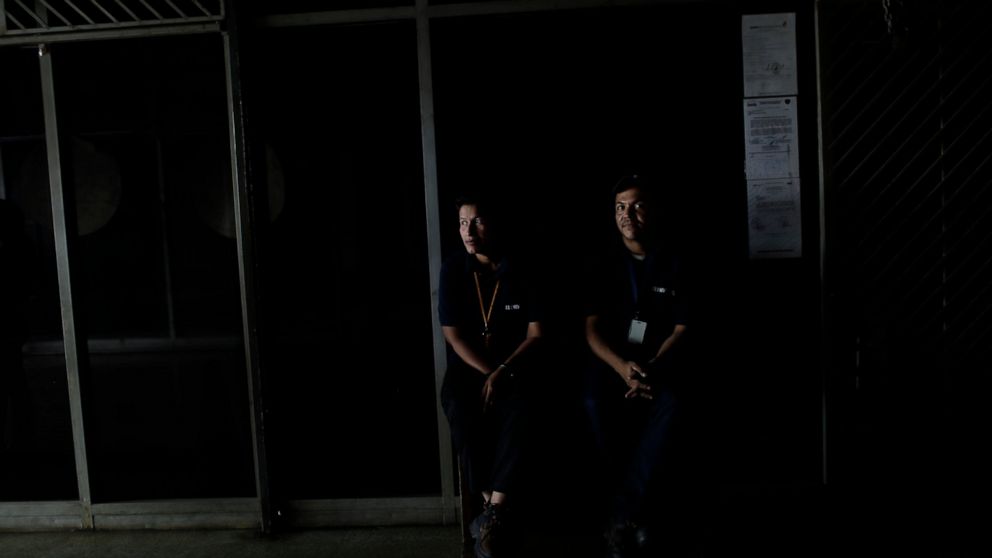[ad_1]
A new power outage spread across much of Venezuela on Monday, knocking communications offline and stirring fears of a repeat of the chaos almost two weeks ago during the nation’s largest-ever blackout.
The outage began shortly after 1 p.m. (1700 GMT) and appeared to have affected as many as 16 of Venezuela’s 23 states, according to reports on social media.
As with the previous outage, the government of President Nicolas Maduro sought to blame U.S.-backed opponents, accusing them of sabotaging the Guri dam, source of the bulk of Venezuela’s electricity.
They said the “attack” had already been controlled, with service restored in many areas and others expected to come online in the coming hours.
“The damage that took 5 or 6 days to repair in the electrical system after the first attack carried out by the right-wing we recovered today in a few hours,” Communications Minister Jorge Rodriguez said in a televised address.
But those reassurances, similar to ones last time around, did little to calm the anger of residents in Caracas who filled traffic-clogged streets as they walked home after subway service in the capital was suspended
Like other small business owners, 27-year-old restaurant manager Lilian Hernandez was bracing for the worst even as service started flickering back on in parts of Caracas.
“We Venezuelans suffer all kinds of problems,” said Hernandez, who had just recently managed to restock food that spoiled during the previous outage.
Netblocks, a non-government group based in Europe that monitors internet censorship, said outage had knocked offline around 57 percent of Venezuela’s telecommunications infrastructure.
The Trump administration, which has made no secret of its desire to remove Maduro, has denied any role in the outages. Electricity experts and opposition leader Juan Guaido faults years of government graft and incompetence.
“This outage is evidence that the dictator is incapable of resolving the crisis,” Guaido wrote on Twitter Monday.
Meanwhile, as Venezuela’s economic and political crisis deepens, many seem resigned to continuous disruptions in their daily routines.
“The important thing is for people not to get desperate,” said William Rodriguez, who sells books at a kiosk under a downtown highway overpass.
Also Monday, the rift between Russia and the United States over how to resolve the crisis in Venezuela widened following the arrival of Russian military personnel to support Maduro.
In a telephone call, U.S. Secretary of State Mike Pompeo told Russian Foreign Minister Sergei Lavrov that “the United States and regional countries will not stand idly by as Russia exacerbates tensions in Venezuela,” the State Department said. Pompeo said “the continued insertion of Russian military personnel” in Venezuela could prolong the country’s problems and urged Russia “to cease its unconstructive behavior.”
Lavrov countered during the call that “Washington’s attempts to organize a coup in Venezuela and the threats directed against its legitimate government represent a violation of the U.N Charter and blunt interference into internal affairs of a sovereign nation,” according to the Russian foreign ministry.
Pompeo’s call to Lavrov came after a Venezuelan official said Russian aircraft arrived in Caracas this past weekend as part of ongoing military cooperation. Reports that two Russian air force planes arrived could not be independently confirmed.
The U.S. and dozens of other countries support Guaido, who says Maduro’s re-election last year was rigged. Maduro alleges the U.S. and Guaido are plotting a coup.
[ad_2]
Source link

